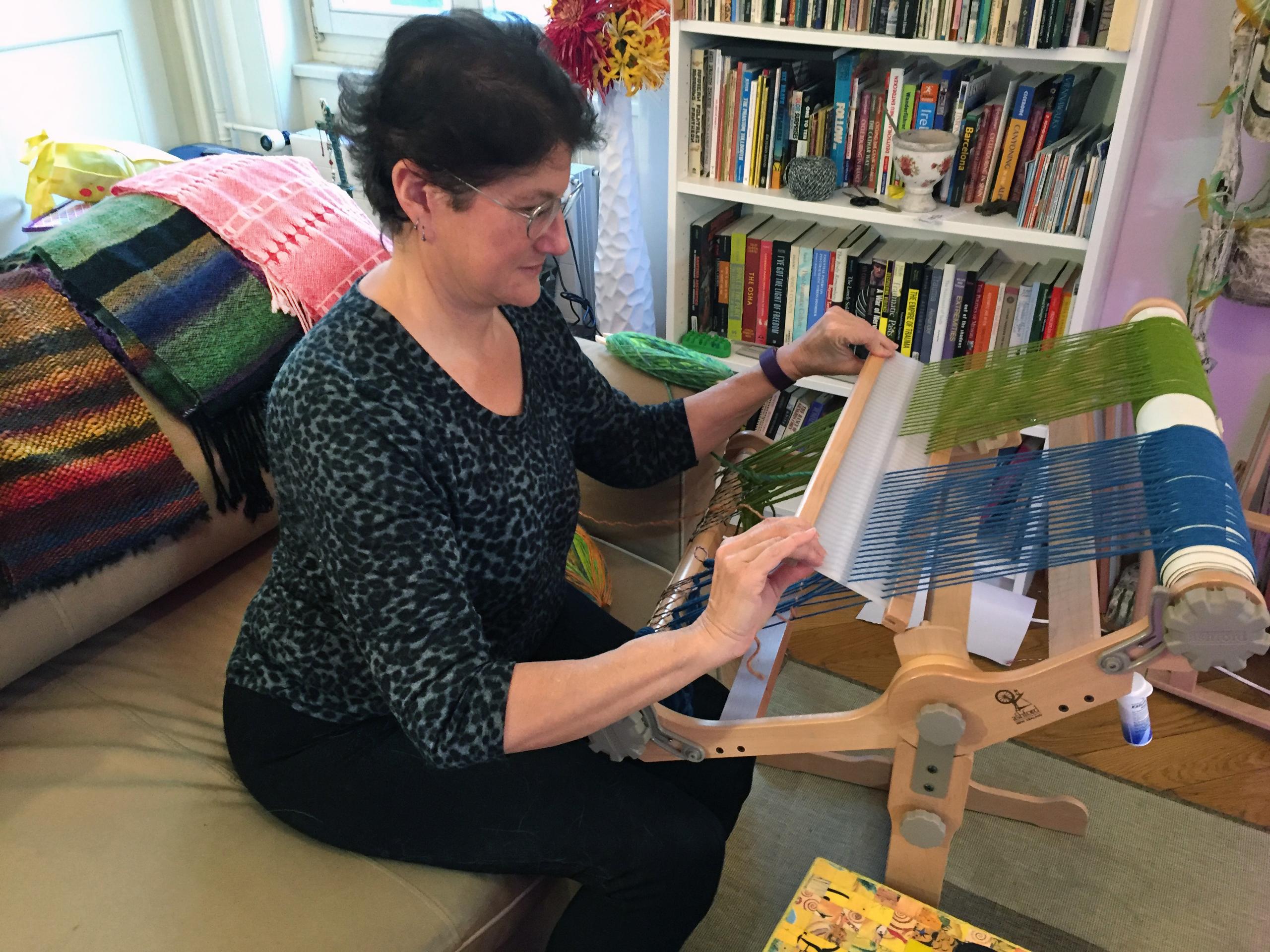
Tradition as a form of integration

By day, American expatriate Kali Tal helps epidemiologists write better research papers. At night she relaxes by weaving scarves. Weaving – a Swiss tradition – offers her an opportunity to be part of the Swiss community.
swissinfo.ch: Why do you weave?
Kali Tal: I do it because most of my work is so intellectual, and the product of it is so ephemeral. And when you weave, something comes out of your hands. When you’re done you have a solid productExternal link and you can feel it and you can measure your progress and how many new techniques you’ve learned. So it’s really rewarding to have something in my life that’s solid.
swissinfo.ch: How big is your loom?
K.T. I have two different looms right now. One is 15 inches [38 cm] across and the other one is 35 inches [89 cm] across.
swissinfo.ch: How did you learn to weave?
K.T. I learned from books and watching YouTube videos. That’s how I learn everything. That’s how I learned how to make jewellery and how to bead and how to paint. All of the other crafts that I do as well.
swissinfo.ch: Do you always do it alone, or do you join other people?
K.T. Weaving is something I do most of the time by myself, but we have a knitting groupExternal link which meets every Thursday, and we get together and I bring my hand loom – the small one – and everyone else knits. And we talk about yarn. It’s a great way to socialise, and for me to hear a lot of Swiss German.
swissinfo.ch: It’s not just foreigners? Americans?
K.T. It’s all Swiss Germans and I’m the foreigner. It’s a way to connect, and it’s really good because it starts at around 6:30pm and it’ll go to 10pm, and so I hear quite a lot of Swiss German. And it’s a way to be comfortable even if I’m not speaking. It’s a really lovely group of women and I love spending time with them.

In compliance with the JTI standards
More: SWI swissinfo.ch certified by the Journalism Trust Initiative































You can find an overview of ongoing debates with our journalists here . Please join us!
If you want to start a conversation about a topic raised in this article or want to report factual errors, email us at english@swissinfo.ch.